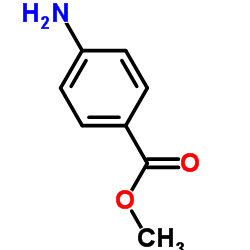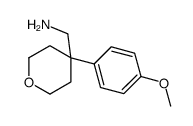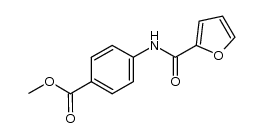664993-53-7
| Name | N-[4-[[4-(4-methoxyphenyl)oxan-4-yl]methylcarbamoyl]phenyl]furan-2-carboxamide |
|---|---|
| Synonyms |
qcr-64
N-[4-({[4-(4-Methoxyphenyl)tetrahydro-2H-pyran-4-yl]methyl}carbamoyl)phenyl]-2-furamide hms1591j12 JW-55 JW 55 |
| Description | JW 55 is a potent and selective β-catenin signaling pathway inhibitor, which functions via inhibition of the PARP domain of tankyrase 1 and tankyrase 2 (TNKS1/2). JW 55 decreases auto-PARsylation of TNKS1/2 in vitro with IC50s of 1.9 μM and 830 nM respectively. |
|---|---|
| Related Catalog | |
| Target |
TNKS2:0.83 μM (IC50) TNKS1:1.9 μM (IC50) |
| In Vitro | JW 55 (JW55) is a potent and selective inhibitor of the canonical Wnt pathway. Wnt3a-induced HEK293 cells containing a transiently transfected ST-Luc (SuperTop-luciferase) reporter show inhibition by JW55 with an IC50 value of 470 nM. JW55 is effective in the range of 1 to 5 μM in SW480 cells and 0.01 to 5 μM in HCT-15 cells. JW55 is effective in the range of 1 to 5 μM in SW480 cells and 0.01 to 5 μM in HCT-15 cells[1]. |
| In Vivo | JW 55 (100 mg/kg, orally) reduces tumor development in conditional Apc knockout mice. JW55 reduces XWnt8-induced axis duplication inXenopus embryos and Tamoxifen-induced polyposis formation in conditional APC mutant mice[1]. |
| Cell Assay | A total of 1,000 SW480 or RKO cells are seeded in 96-well plates. The day after, the cell culture medium is exchanged to solutions that contained 0.1% DMSO or 10 μM JW55 for RKO cells and 0.1% DMSO or 10, 5, or 1 μM JW55 for SW480 cells. All samples consist of a minimum of 6 replicates. The plate is incubated in an IncuCyte inside a cell culture incubator. Images are captured every second hour to monitor proliferation[1]. |
| Animal Admin | Mice[1] Seven 12-week old female ApcCKO/CKO/Lgr5-CreERT2 mice are injected intraperitonally with 25 mg/kg of Tamoxifen diluted in an ethanol and corn oil (ratio 1:4). The mice are randomized into 2 groups and treated with either JW55 (100 mg/kg) or vehicle (DMSO). Daily per oral applications started the day after and continued for 3 weeks. The mouse body weight is measured twice a week. The mice are sacrificed and the intestines are dissected, washed in PBS, and fixed in formaldehyde [10% solution (v/v) in PBS]. The small intestines are stained using 1% methylene blue prepared in 10% paraformalaldehyde (PFA)/PBS solution. Small ileum Swiss-rolls are embedded in paraffin sectioned and stained with hematoxylin and eosin. Fixed colons are embedded in paraffin, sectioned and stained with an anti-β-catenin antibody. The number and size of the intestinal lesions are quantified by the Ellipse program. |
| References |
| Density | 1.2±0.1 g/cm3 |
|---|---|
| Boiling Point | 572.6±50.0 °C at 760 mmHg |
| Molecular Formula | C25H26N2O5 |
| Molecular Weight | 434.484 |
| Flash Point | 300.1±30.1 °C |
| Exact Mass | 434.184174 |
| PSA | 93.29000 |
| LogP | 3.54 |
| Appearance | white solid |
| Vapour Pressure | 0.0±1.6 mmHg at 25°C |
| Index of Refraction | 1.601 |
| Storage condition | -20℃ |
| RIDADR | NONH for all modes of transport |
|---|
| Precursor 4 | |
|---|---|
| DownStream 0 | |




